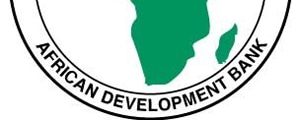
THE African Development Bank (AfDB) has launched a $24 million capacity building project for public finance and economic management as Zimbabwe steps up efforts to tackle its $10,7 billion external debt.
Acting Business Editor
The AfDB, according to a statement released recently, would roll out the three-year project to assist treasury in effectively managing public finances.
Zimbabwe, which introduced multiple currencies in 2009, has been operating on a cash budget due to capital constraints triggered by a high country risk and low foreign direct investment.
“The project is aligned with the country’s Medium Term Plan (MTP) and the Zimbabwe Accelerated Arrears Clearance, Debt and Development Strategy (ZAADDS),” said the AfDB in a statement.
“The project will be financed with ADF resources to the tune of $24,2 million over a period of three years, ending 2015.
“The project’s overall development objective is to improve public finance and economic management to support the implementation of the MTP in restoring macroeconomic stability and promoting inclusive growth.
“The specific objectives are to strengthen the capacity of key institutions involved in public financial management, monitoring and evaluation, and private sector development.”
- Chamisa under fire over US$120K donation
- Mavhunga puts DeMbare into Chibuku quarterfinals
- Pension funds bet on Cabora Bassa oilfields
- Councils defy govt fire tender directive
Keep Reading
Zimbabwe’s economy, according to Finance minister Tendai Biti, contracted by 3% during the first four months of of the year due to political uncertainty surrounding the July 31 elections.
Experts say government commitment to meeting the International Monetary Fund (IMF) staff monitored programme adopted last month is also critical in stimulating economic growth.
The staff-monitored programme is an informal agreement between the IMF and the host country, which allows the IMF to monitor the implementation of economic programmes of that same country.
Zimbabwe’s economy began a growth trajectory in 2009 when the country introduced the multicurrency system, becoming one of the fastest growing economies in the world. The economy took off at 5,4% in 2009, 9,6% in 2010, 10,6% in 2011 and 5,6% in 2012.
The inflation rate began at -7,7% in 2009, 2010 inflation was at 3%, 3,5% in 2011 and 2012 3,7%.











